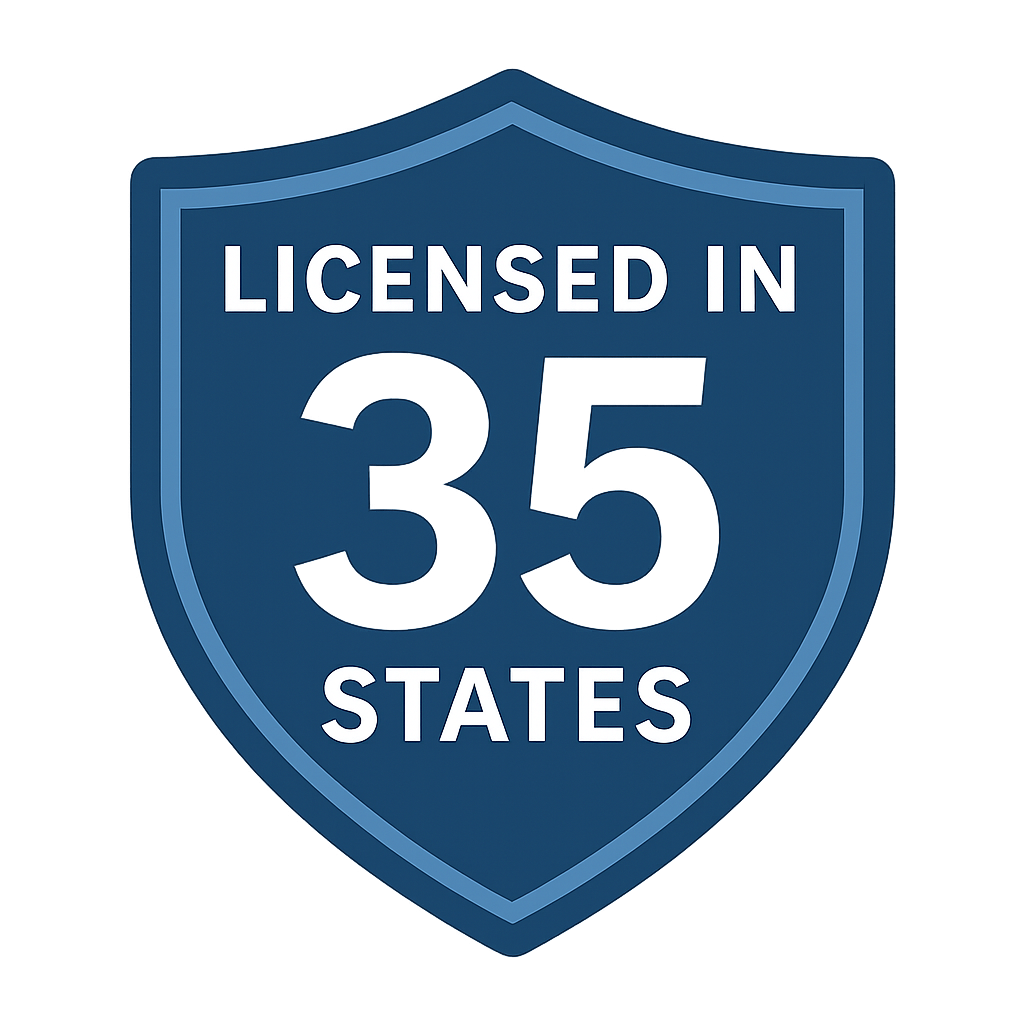Difference Between Comprehensive and Collision (Auto Insurance)
Comprehensive = non-crash events (theft, hail, deer, vandalism). Collision = impact with vehicles/objects. See examples, claims tips, and when each makes sense.
Quick take
Comprehensive covers non-collision losses (weather, theft, vandalism, animals). Collision covers impact with vehicles or objects—even if you’re at fault.
Deep dive: Difference Between Comprehensive & Collision
“Full coverage” ≠ everything
“Full coverage” typically means liability + comprehensive + collision. See our full coverage guide for what’s included and what isn’t.
Talk it through?
What is the difference between comprehensive and collision?
Comprehensive = events other than a crash (theft, vandalism, weather, animals). Collision = you hit another vehicle/object—or an object hits your moving car.
Is comprehensive the same as “full coverage”?
No. “Full coverage” generally combines liability + comprehensive + collision. See our full coverage explainer.
Does comprehensive cover glass?
Usually yes, under comprehensive (sometimes with a special glass deductible).
Is a pothole collision or comprehensive?
Collision. Impact with the road or a pothole is considered a collision claim.
Is hitting a deer collision or comprehensive?
Comprehensive. Animal strikes are typically comprehensive.
Does either coverage pay for other people’s injuries?
No. That’s liability coverage. See our basics in Auto Insurance Facts.
Hail dents my car—what coverage?
Comprehensive.
Someone keys my door—what coverage?
Comprehensive (vandalism).
Backed into a pole—what coverage?
Collision.
Hit-and-run while parked—what coverage?
Often collision (your car was struck). Some states/times may use UMPD—ask us.
Tree branch falls on the hood—what coverage?
Comprehensive.
Slide on ice into a guardrail—what coverage?
Collision.
Comprehensive — Covers
- Theft & vandalism
- Hail, wind, flood, fire
- Falling objects
- Animal strikes (deer)
- Glass (often separate deductible)
Collision — Covers
- Vehicle-to-vehicle crashes
- Object impacts (pole, guardrail)
- Pothole damage
- Rollovers & single-car crashes
Neither — Typically Excludes
- Wear & tear, maintenance
- Mechanical breakdown
- Intentional damage
- Commercial use without endorsement
What deductibles are common?
$250–$1,000 for comprehensive and collision; many choose $500–$1,000 to lower premium.
Should my deductibles match?
Often yes for simplicity; sometimes a lower glass or comprehensive deductible makes sense.
Will a comprehensive claim raise my rate?
It can, but usually less than at-fault collision claims. Depends on the carrier and frequency.
Do I pay the deductible if the other driver is at fault?
In a collision, you might initially—then your insurer may subrogate to get it back.
How do I file a claim?
Call us or the carrier directly; we’ll help with estimates and rentals. See shopping tips.
Do I need photos after a storm loss?
Yes—take multiple angles, include the VIN/plate when possible.
Comprehensive — Claim Flow
- Report loss & photos
- Adjuster review
- Deductible applies
- Repair or cash settlement
Collision — Claim Flow
- Report details & police report if applicable
- Fault evaluated
- Deductible applies
- Subrogation possible
Helpful Add-ons
- Rental reimbursement
- Roadside assistance
- OEM parts (where available)
Which is usually cheaper—comprehensive or collision?
Comprehensive typically costs less than collision for the same vehicle.
How do I lower comprehensive cost?
Raise the deductible, park in a garage, add anti-theft.
How do I lower collision cost?
Raise the deductible, safe-driver programs (telematics), and avoid small claims.
Do bundles help?
Yes. Auto + home/renters can reduce both comprehensive and collision. See cheap car insurance tips.
Can I drop one coverage?
If you own the car outright and its value is low, dropping collision (or both) may be reasonable. Let us price the scenarios.
Does “full coverage” include roadside or rental?
Not automatically. Those are optional add-ons.
Lower Comp Cost
- Higher comp deductible
- Anti-theft, secure parking
- Avoid small windshield claims
Lower Collision Cost
- Higher collision deductible
- Telematics safe-driver
- Accident-forgiveness options
Keep Both? When Smart
- Newer/financed vehicles
- High theft/hail areas
- Can’t self-insure big repairs
Do lenders require comprehensive and collision?
Usually yes for financed or leased vehicles until payoff or turn-in.
What if I remove coverage while financed?
The lender may force-place insurance—expensive and limited.
Is gap/loan-lease payoff related?
Gap helps if the car is totaled but loan balance exceeds its value—often paired with comp/collision.
What coverage does a lease typically demand?
Both comp & collision, specific liability limits, and sometimes OEM parts endorsements.
When can I drop them after payoff?
Once you own the car and can handle repair/replacement risk; we’ll price both ways first.
Do antique or collector cars follow the same rules?
Often specialty policies use “agreed value” and may bundle comp/collision differently.
Can I change deductibles mid-term?
Usually yes; premium adjusts pro-rata.
What if I rarely drive?
We can explore pay-per-mile/telematics options and comp-only for storage situations.
Will a comprehensive claim add a surcharge?
Less likely than at-fault collision, but varies by carrier and claim count.
How do liability limits relate to comp/collision?
They don’t—liability protects others. See our liability basics (concepts apply broadly).
Where can I read more on this topic?
Start here: Comprehensive vs Collision and Insurance FAQs.
Can you text me what to pick for my car?
Yes—send make, model, mileage, where you park, and loan/lease status.
Why talk to an agent?
We price comp/collision both ways, spot overlap, and show you the confident pick. No pressure.
Interlink Compliance: internal links used on this page
Total internal links detected: 0
Last Updated on by Zee Caddick



